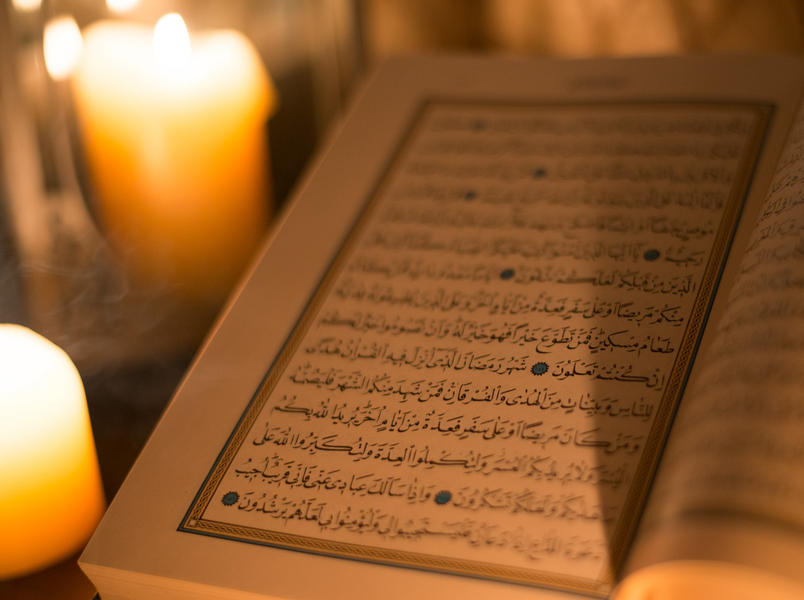Religious scholars: Blame Saudi Arabia for ISIS's theology


Just about every serious and influential Islamic authority has denounced Islamic State of Iraq and Syria (ISIS) for its medieval theology and derided ISIS leader Abu Bakr al-Baghdadi's self-proclaimed caliphate as a bloody, horrific vanity project. If you're interested in the finer points of the mainstream Islamic critique of ISIS's theology, 126 Islamic scholars and clerics (to date) have signed an "open letter to al-Baghdadi," explaining to him in 17 single-spaced pages exactly how and why he is wrong.
Late to the party have been the religious authorities in Saudi Arabia. It wasn't until Aug. 19, with a little apparent prodding from the Saudi King, that Sheikh Abdul Aziz al-Sheikh, the kingdom's grand mufti, publicly denounced ISIS as "enemy No. 1 of Islam." The delayed condemnation, suggests David D. Kirkpatrick in The New York Times, citing Muslim scholars, may be because ISIS's extremist theology is based on the Saudis' Wahhabi school of Islam.
Al-Baghdadi's "ruthless creed," Kirkpatrick explains, "has clear roots in the 18th-century Arabian Peninsula." He continues:
The Week
Escape your echo chamber. Get the facts behind the news, plus analysis from multiple perspectives.

Sign up for The Week's Free Newsletters
From our morning news briefing to a weekly Good News Newsletter, get the best of The Week delivered directly to your inbox.
From our morning news briefing to a weekly Good News Newsletter, get the best of The Week delivered directly to your inbox.
It was there that the Saud clan formed an alliance with the puritanical scholar Muhammed ibn Abd al-Wahhab. And as they conquered the warring tribes of the desert, his austere interpretation of Islam became the foundation of the Saudi state.... "It is a kind of untamed Wahhabism," said Bernard Haykel, a scholar at Princeton. "Wahhabism is the closest religious cognate." [New York Times]
How extreme is ISIS's strain of Islam? Al Qaeda believes that terrorism is a way to redeem Muslim nations and communities, while ISIS and its Wahhabist forebears embraced killing infidels and aberrant Muslims as a way to purify the faith. "For Al Qaeda, violence is a means to an ends," Haykel tells The Times. "For ISIS, it is an end in itself." Read more about ISIS's theological foundations at The New York Times.
A free daily email with the biggest news stories of the day – and the best features from TheWeek.com
Peter has worked as a news and culture writer and editor at The Week since the site's launch in 2008. He covers politics, world affairs, religion and cultural currents. His journalism career began as a copy editor at a financial newswire and has included editorial positions at The New York Times Magazine, Facts on File, and Oregon State University.
-
 The elite falcon trade in the Middle East
The elite falcon trade in the Middle EastUnder the Radar Popularity of the birds of prey has been ‘soaring’ despite doubts over the legality of sourcing and concerns for animal welfare
-
 A running list of the international figures Donald Trump has pardoned
A running list of the international figures Donald Trump has pardonedin depth The president has grown bolder in flexing executive clemency powers beyond national borders
-
 Mixed nuts: RFK Jr.’s new nutrition guidelines receive uneven reviews
Mixed nuts: RFK Jr.’s new nutrition guidelines receive uneven reviewsTalking Points The guidelines emphasize red meat and full-fat dairy
-
 British warship repels 'largest Houthi attack to date' in the Red Sea
British warship repels 'largest Houthi attack to date' in the Red SeaSpeed read Western allies warn of military response to Iranian-backed Yemeni rebels if attacks on ships continue
-
 Houthi rebels claim Red Sea ship attacks
Houthi rebels claim Red Sea ship attacksspeed read Iran-backed Yemeni group vows to escalate aggression towards Israel-linked vessels in revenge for Gaza war
-
 Israel plans next phase of Gaza war as first hostages released
Israel plans next phase of Gaza war as first hostages releasedSpeed read After four-day ceasefire 'we will not stop' until destruction of Hamas, says Israel
-
 Mob storms Russian airport 'looking for Jews'
Mob storms Russian airport 'looking for Jews'Speed Read Plane from Israel surrounded by rioters chanting antisemitic slogans after landing in Russia's Dagestan region
-
 Tuberville's military promotions block is upending lives, combat readiness, 3 military branch chiefs say
Tuberville's military promotions block is upending lives, combat readiness, 3 military branch chiefs saySpeed Read
-
 Ukraine's counteroffensive is making incremental gains. Does it matter in the broader war?
Ukraine's counteroffensive is making incremental gains. Does it matter in the broader war?Speed Read
-
 US commissions first-ever Navy ship in a foreign port
US commissions first-ever Navy ship in a foreign portSpeed Read
-
 British spy chief, Wagner video suggest Prigozhin is alive and freely 'floating around'
British spy chief, Wagner video suggest Prigozhin is alive and freely 'floating around'Speed Read
